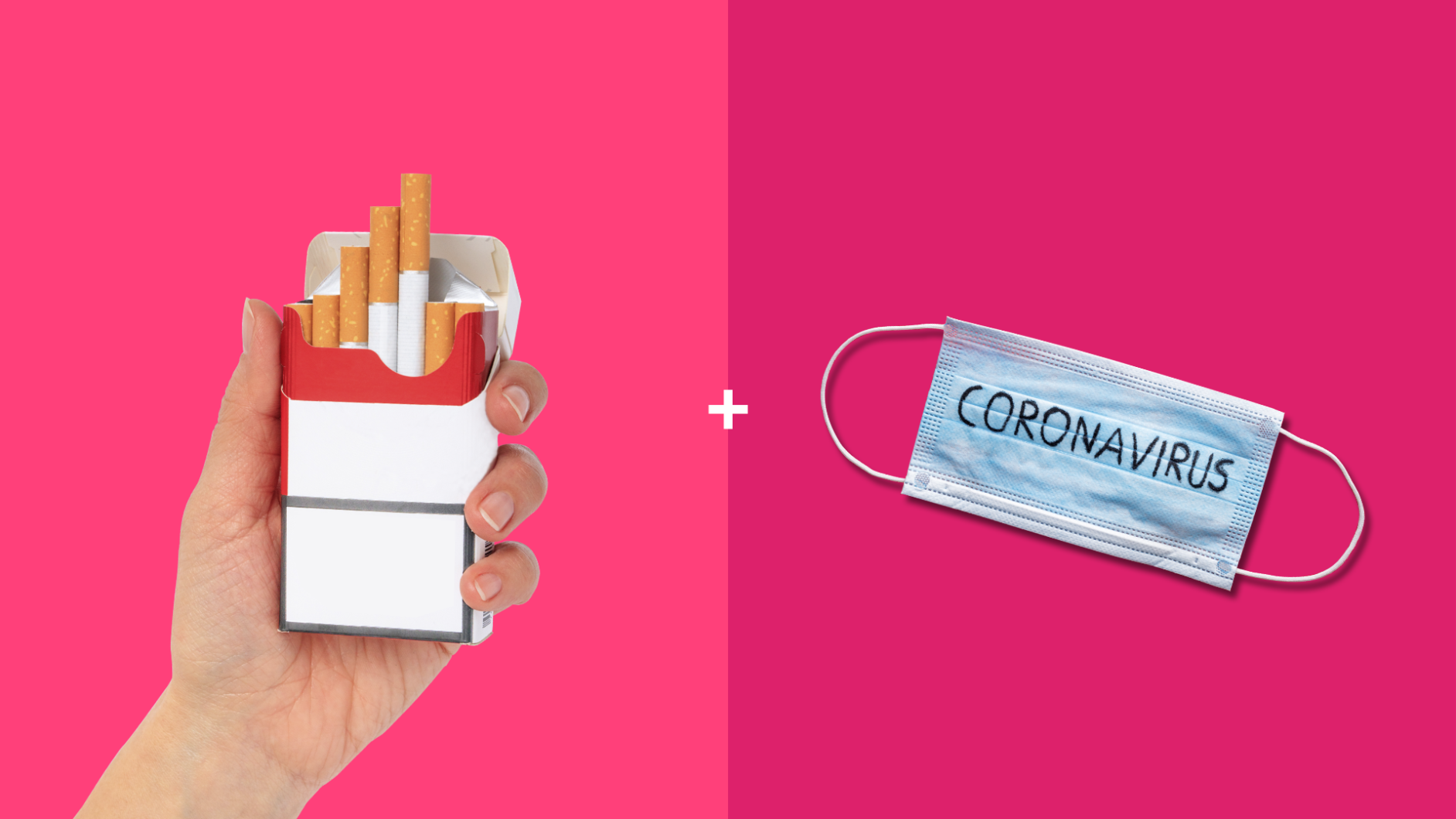CORONAVIRUS UPDATE: As experts learn more about the novel coronavirus, news and information changes. For the latest on the COVID-19 pandemic, please visit the Centers for Disease Control and Prevention.
Smoking is the leading cause of preventable death in the United States, according to the Centers for Disease Control (CDC). Yet an estimated 34.2 million adults in the U.S. still smoke cigarettes. Smoking increases your risk of cancer, heart disease, respiratory disease, and perinatal conditions. Here’s what that means during the current coronavirus pandemic.
Can smoking increase your chances of contracting COVID-19?
The answer to this question isn’t clear cut—because the virus is so new, the research is limited.
The World Health Organization (WHO) says that COVID-19 is simply too new to definitively know the answer to this question. There is a chance that smokers are at an increased chance of testing positive for coronavirus, simply because smokers are already at an increased risk of respiratory infections.
Opinion in the medical community is split. Wendi Jones, Pharm.D., a North Carolina–based pharmacist says that smoking cigarettes impacts your immune, circulatory, and respiratory systems. Because of its immunosuppressive effect, “it is possible that a person exposed to the virus may more likely contract COVID-19,” she explains.
However, Osita Onugha, MD, chief of thoracic surgery at Providence St. John’s Health Center in California, believes that smoking doesn’t increase your chances of contracting the novel coronavirus.
An official link hasn’t been made, but that doesn’t mean that there is no heightened risk for smokers.
Smoking increases the chances of adverse outcomes in COVID-19 patients
Medical professionals suggest that if a patient tests positive for COVID-19 and is a smoker, the risks of severe symptoms and complications do increase.
“When the lung is damaged and inflamed, and you get exposed to COVID-19, there is increased inflammation in the lungs, which makes it much harder for the lung to take in oxygen,” says Dr. Onugha, and added that smoking already increases your chances of having lung damage and inflammation prior to contracting the virus.
The WHO says that the fatality rate in China is much higher in patients with:
- Cardiovascular disease
- Diabetes
- Hypertension
- Chronic respiratory disease
- Cancer
These conditions can all be linked to smoking.
“Smokers [without preexisting conditions] have already been shown to have more complications with this virus than healthy nonsmokers,” says Dr. Jones.
While the research is limited, early data indicates that smoking increases the chances of complications from the novel coronavirus. One study conducted in China suggests smokers are at significantly higher risk of complications from COVID-19 than otherwise healthy patients.
Does vaping or cannabis use increase risk for COVID-19?
Vapers or cannabis users have a similar risk to cigarette smokers.
Dr. Onugha says that smoking cannabis and vaping also damage the lungs, so the risks are the same.
Dr. Jones agrees: “Any damage done to the lungs does not bode well for patients who have contracted COVID-19. As lung tissue is attacked by the virus it becomes more and more difficult for a person to breathe.”
She also clarifies that marijuana use doesn’t indicate increased risk, as long as cannabis is not inhaled. For example, if people consume cannabis edibles or use CBD oil they won’t be at an increased risk.
How to protect yourself from coronavirus if you smoke
“The best way for a smoker to protect themselves from COVID-19 is to quit smoking,” says Dr. Onugha. He also adds that patients should continue to take any prescribed inhalers to ensure their lungs are performing optimally.
While quitting smoking—especially during a stressful time (like during a global pandemic)—may feel daunting and overwhelming, it really is the ideal protection against complications from coronavirus.
However, social distancing is also imperative to reducing the risk of COVID-19, says Dr. Jones. Staying away from others outside of your immediate family and reducing errands to only the essentials (and ideally once per week) are great ways to protect yourself. Avoid touching any objects or surfaces while outside. Wash your hands frequently to prevent COVID-19 infection.
RELATED: What older people should do to protect themselves from coronavirus
What are the benefits of smoking cessation?
“Stopping smoking has immediate and rapid effects on improving a person’s overall health,” says Dr. Jones.
These beneficial impacts include:
- Improved immunity
- Increased circulation
- Reduced blood pressure
- Better oxygenation to body tissue
- Reduced risk of heart attack
- Reduced risk of cancer
- Monetary savings
In other words, if you want to play it safe, now is a good time to try to kick the habit.
“I would recommend smokers interested in quitting making virtual visits with their primary care doctors to create the best plan that will help them quit,” says Dr. Onugha, who also recommends smoking aides and medications to help with quitting.
RELATED: Wellbutrin vs. Chantix to stop smoking
For those who want to quit smoking, the CDC recommends calling the toll-free number 1-800-QUIT-NOW (1-800-784-8669) for free consultation and support.











